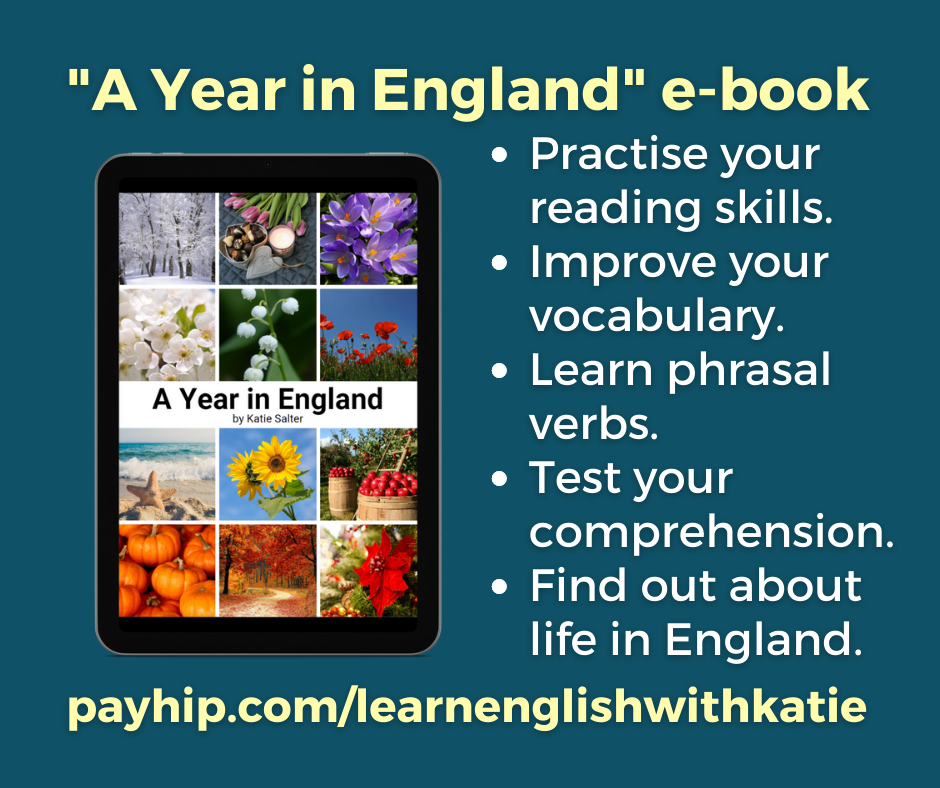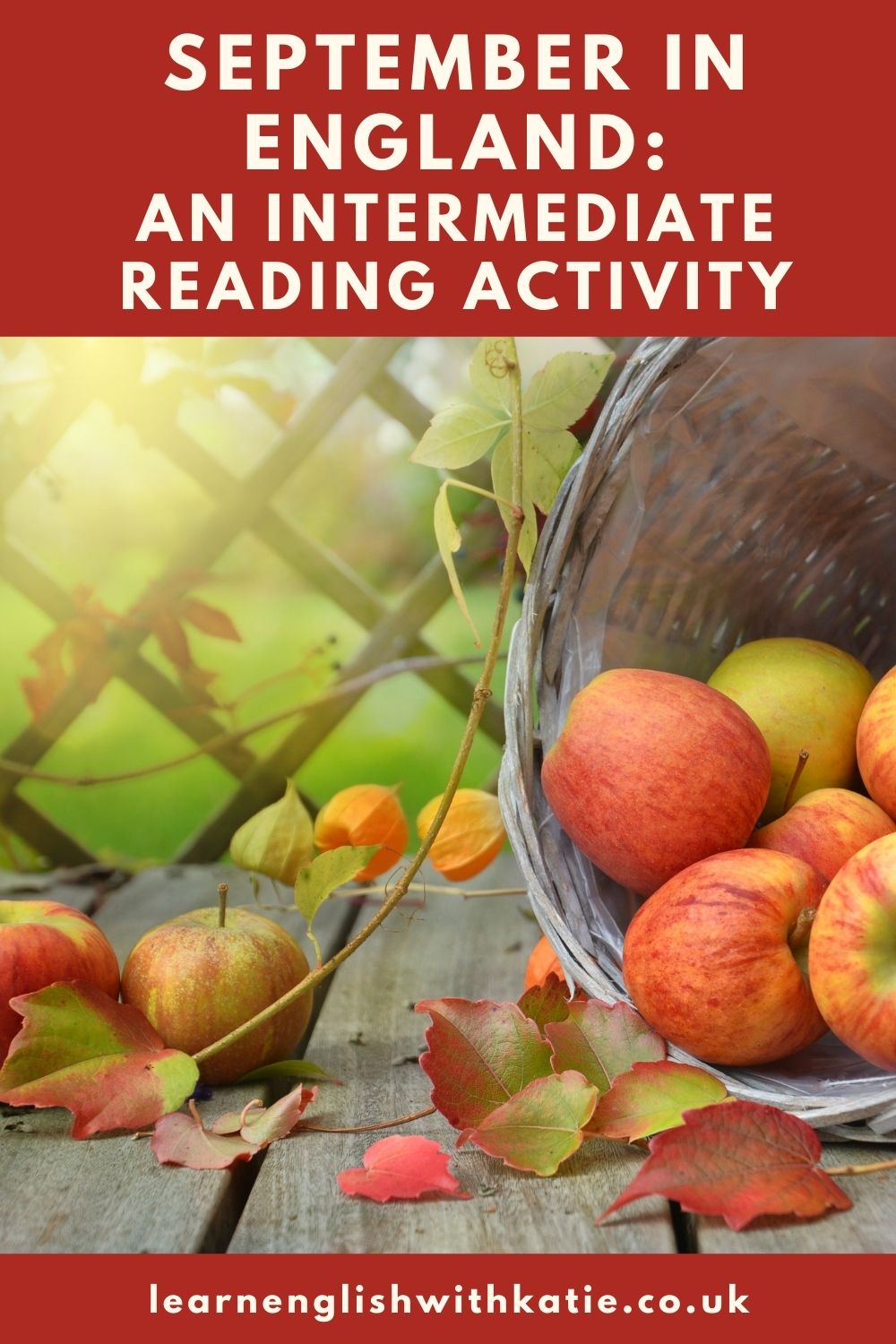|
September gets its name from the Latin word for seven. It’s actually the ninth month of the year but it used to be the seventh before the Romans changed their calendar over two thousand years ago. At the start of the month, there may still be warm summer-like days, but then the weather begins to cool down, there is more wind and rain, and it gets dark earlier and earlier in the evening as the month goes on. The 22nd or 23rd is officially the first day of autumn. It is also called the autumn equinox, which is when night and day are the same length. At the beginning of September, all the children go back to school. As you can imagine, some of them are happy and excited about this but many of them are not! The parents are usually relieved though because it’s difficult to keep children entertained all summer. State schools have had six weeks’ holiday and private schools even longer. By the end of the summer, the kids are starting to get bored and mums and dads need a break! Four and five-year-olds start school for the first time and most primary school children have a new teacher. Eleven-year-old children start secondary school, sometimes known as “big school”. This is a huge change for them. Instead of having just one teacher all day, they now have a different teacher for each subject. Universities start later in the month or even in early October. Some schools and churches have a Harvest Festival in September, especially in villages and rural areas. Harvest Festival is a celebration to mark the harvesting of crops from the fields and to give thanks. Sometimes churches and schools collect food which they then give away to poorer families. Villages may also have a harvest supper. This might be a bring-and-share meal where everyone takes a different dish. Heritage Open Days are held every year in September. During this month, volunteers organise guided tours and other activities related to architecture and culture. A number of historic buildings, stately homes and museums are open to the public for free on certain days. This provides an opportunity for people to explore England's rich history and heritage. If you would like to learn more about English life, try my e-book, "A Year in England". It contains a text like this for each month, plus a vocabulary list and reading comprehension questions. There are also bonus sections about Christmas and Easter. Click the image below or visit my shop.
0 Comments
Your comment will be posted after it is approved.
Leave a Reply. |
About the blogFollow the blog for mini lessons and tips on how to improve your English. Categories
All
Archives
July 2024
|


 RSS Feed
RSS Feed
